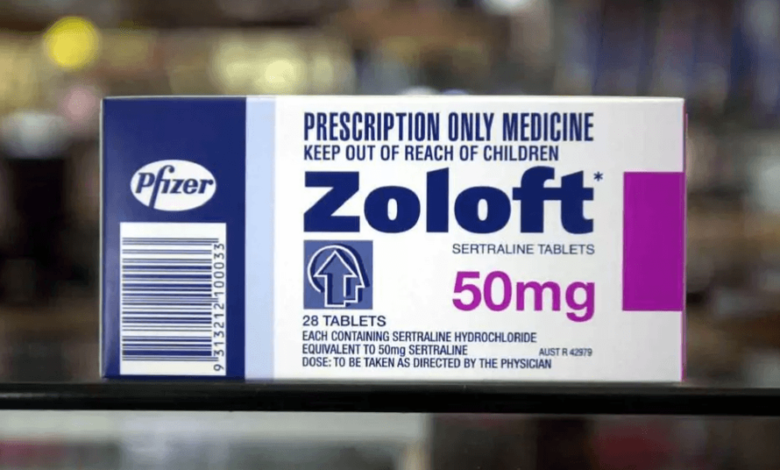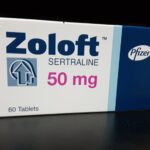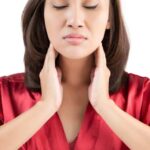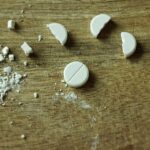What is Sertraline Used For?

Sertraline is a type of antidepressant sold under the brand name Zoloft among others. Sertraline is a selective serotonin reuptake inhibitor class of medication and affects chemicals in the brain that may be unbalanced in people with depression, panic, anxiety, or obsessive-compulsive symptoms.
Sertraline is used to treat depression, obsessive-compulsive disorder, panic disorder, anxiety disorders, post-traumatic stress disorder (PTSD), and premenstrual dysphoric disorder (PMDD). It usually takes 4 to 6 weeks for sertraline to work. Sertraline may also be used for purposes not listed in this medication safety guide.
Sertraline has not been designated as a controlled substance by the Drug Enforcement Administration (DEA). It is not considered to have any serious risk of abuse or addiction.
How should this medicine be used?
Sertraline comes as a tablet and a concentrate (liquid) to take by mouth. It is usually taken once daily in the morning or evening. To treat premenstrual dysphoric disorder, sertraline is taken once a day, either every day of the month or on certain days of the month. Take sertraline at around the same time every day. Follow the directions on your prescription label carefully, and ask your doctor or pharmacist to explain any part you do not understand. Take sertraline exactly as directed. Do not take more or less of it or take it more often than prescribed by your doctor.
Sertraline concentrate must be diluted before use. Immediately before taking it, use the provided dropper to remove the amount of concentrate your doctor has told you to take. Mix the concentrate with 4 ounces (1/2 cup [120 milliliters]) of water, ginger ale, lemon or lime soda, lemonade, or orange juice. After mixing, the diluted solution may be hazy; this is normal. Do not mix the concentrate with any liquids other than the ones listed. Drink the diluted solution immediately.
Your doctor may start you on a low dose of sertraline and gradually increase your dose, not more than once a week.
It may take a few weeks or longer before you feel the full benefit of sertraline. Continue to take sertraline even if you feel well. Do not stop taking sertraline without talking to your doctor. If you suddenly stop taking sertraline, you may experience withdrawal symptoms such as nausea, sweating, depression, mood changes, frenzied or abnormally excited mood, irritability, anxiety, confusion, dizziness, headache, tiredness, seizures, ringing in the ears, numbness or tingling in the arms, legs, hands, or feet, difficulty falling asleep or staying asleep.
What are side effects associated with using sertraline (Zoloft)?
Common side effects of sertraline include:
- Diarrhea
- Nausea
- Headache
- Insomnia
- Ejaculation disorder
- Dizziness
- Dry mouth
- Fatigue
- Drowsiness
- Agitation
- Loss of appetite
- Anxiety
- Constipation
- Numbness and tingling
- Impotence
- Sweating
- Feeling unwell (malaise)
- Vomiting
- Pain
- Weakness
- Back pain
- Chest pain
- Increased appetite
- Muscle pain
- Palpitations
- Runny nose
- Ringing in the ears (tinnitus)
- Weight gain
- Yawning
The information contained in this document does not contain all possible side effects and other side effects or problems may occur as result of using this medicine. Check with your doctor for additional medical information about side effects of this medicine or other health concerns.
What other drugs interact with Sertraline (zoloft)?
If your doctor has directed you to use this medicine, your doctor or pharmacist may already be aware of any possible drug interactions and may be monitoring you for them. Do not start, stop, or change the dosage of any medicine before checking with your doctor, health care provider or pharmacist first for more information.
Severe Interactions of sertraline include:
- eliglustat
- flibanserin
- isocarboxazid
- lomitapide
- phenelzine
- pimozide
- procarbazine
- selegiline
- thioridazine
- tranylcypromine
This document does not contain all possible interactions. Therefore, before using this product, tell your doctor or pharmacist of all the products you use. Keep a list of all your medications with you, and share the list with your doctor and pharmacist. Check with your physician for medical advice if you have health questions or concerns.
Sertraline Safety Information
You should not use sertraline if you also take pimozide, or if you are being treated with methylene blue injection.
Do not use sertraline if you have used an Monoamine oxidase inhibitor (MAOI) in the past 14 days, such as isocarboxazid, linezolid, methylene blue injection, phenelzine, rasagiline, selegiline, or tranylcypromine.
Some children and young adults have thoughts about suicide when first taking an antidepressant. Stay alert to changes in your mood or symptoms. Report any new or worsening symptoms to your doctor.
Seek medical attention right away if you have symptoms of serotonin syndrome, such as: agitation, hallucinations, fever, sweating, shivering, fast heart rate, muscle stiffness, twitching, loss of coordination, nausea, vomiting, or diarrhea.




